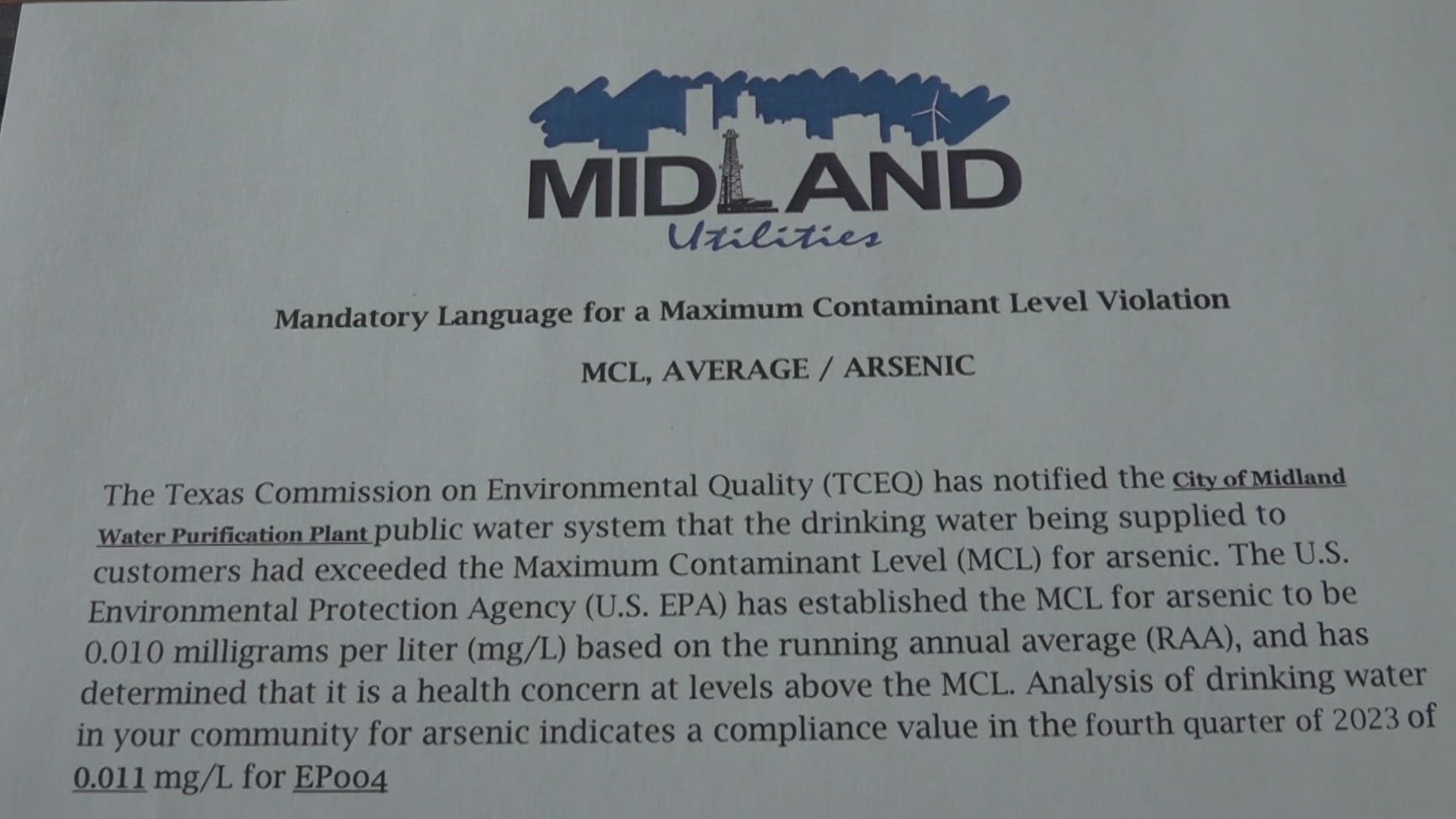MIDLAND, Texas — The City of Midland sent out a notice to residents in a January water bill, stating that the drinking water has exceeded the maximum contaminant level for arsenic.
"It states that for over the past year we went over the annual average for arsenic allowed," City of Midland Utility Director Carl Craigo said. "What’s allowed is .01 milligrams per liter and we went over by .0108 milligrams per liter. So we did go over but it was barely anything."


According to Craigo, the water came from the city's T-Bar water source, so only a percentage of the water was affected.
"It’s about 30% of our water," Craigo said. "Before it gets to any residents in the city, it mixes with the city system. So it gets diluted out even more so that number .0108 once it hit the city system was diluted down further than that."
Already during the week of Jan. 8, the city is looking into treating this water and ridding it of this contaminant.
"Friday we’re kicking off the pilot study for a different way to treat T-Bar water that will remove 57% arsenic so we wouldn’t have this problem again," Craigo said. "Our operators out there we ensure that they look at their well calculations again so they have well calculations that’s supposed to keep that arsenic down so they’re revamping those well calculations so they know to turn these wells on to make sure arsenic in these wells is below standard."
Once the water reaches Midlanders homes and begins to come out of the faucets, it shouldn't cause any harm.
"There’s no treatment anybody needs to do at their house even the letter states from the state there isn’t any reason to switch your water source it’s just if we were doing this for years and years and years then you would start seeing problems," Craigo said. "Since 2016, we’ve never got to these numbers before and we’ll be out of these numbers next month (February) by time they relook at how they send water through the wells."

